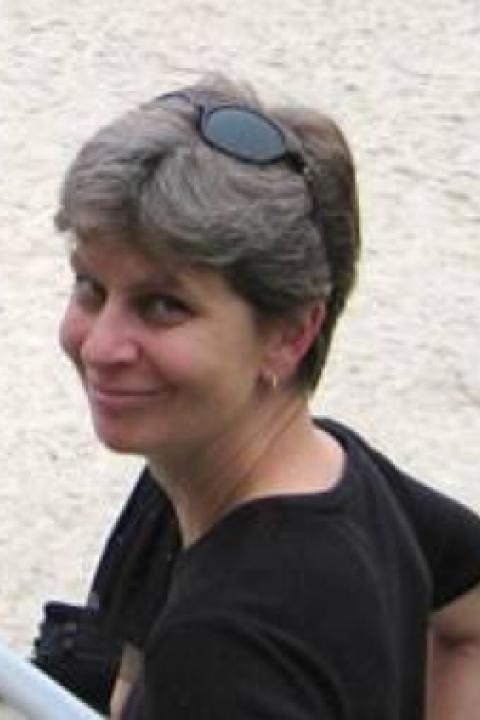
Jennifer Jacobs
Courses Taught
- CEE 650: Fluid Mechanics Lab
- CEE 751/851: Open Channel Flow
- CEE 754/854: Engineering Hydrology
- CEE 799H: Senior Honors Thesis
- CEE 951: Statistical Hydrology
Education
- Ph.D., Civil Engineering, Cornell University
- M.S., Civil Engineering, Tufts University
- B.S., Electrical and Electronic Engineering, Brown University
Selected Publications
Cho, E., Verfaillie, M., Jacobs, J. M., Hunsaker, A. G., Sullivan, F. B., Palace, M., & Wagner, C. (2025). Characterizing the spatial distribution of field-scale snowpack using unpiloted aerial system (UAS) lidar and structure-from-motion (SfM) photogrammetry. Hydrology and Earth System Sciences, 29(18), 4539-4556. doi:10.5194/hess-29-4539-2025
Sias, J. E., Dave, E. V., Underwood, B. S., Bowers, B. F., Harvey, J. T., Henning, T. F. P., . . . Hendrick, P. (2025). Climate change impacts on roadways. Nature Reviews Earth & Environment, 6(9), 555-573. doi:10.1038/s43017-025-00711-9
Ge, Y., Iman, S., Martín, Y., Lim, S. H., Jacobs, J. M., & Jia, X. (2025). Residents’ Perception of Flood Prediction Products: The Study of NASA’s Satellite Enhanced Snowmelt Flood Prediction. Sustainability, 17(14), 6328. doi:10.3390/su17146328
Johnston, J. M., Jacobs, J. M., Hunsaker, A., Wagner, C., & Vardaman, M. (2025). Applications of Snow-Covered Areas from Unoccupied Aerial Systems (UAS) Visible Imagery: A Demonstration in Southeastern New Hampshire. Remote Sensing, 17(11), 1885. doi:10.3390/rs17111885
Moradi, M., Kraatz, S., Johnston, J., & Jacobs, J. M. (2024). Comparing Three Freeze-Thaw Schemes Using C-Band Radar Data in Southeastern New Hampshire, USA. Remote Sensing, 16(15), 2784. doi:10.3390/rs16152784
Choi, M., Jacobs, J. M., Anderson, M. C., & Bosch, D. D. (2013). Evaluation of drought indices via remotely sensed data with hydrological variables. JOURNAL OF HYDROLOGY, 476, 265-273. doi:10.1016/j.jhydrol.2012.10.042
Douglas, E. M., Jacobs, J. M., Sumner, D. M., & Ray, R. L. (2009). A comparison of models for estimating potential evapotranspiration for Florida land cover types. JOURNAL OF HYDROLOGY, 373(3-4), 366-376. doi:10.1016/j.jhydrol.2009.04.029
Choi, M., & Jacobs, J. M. (2007). Soil moisture variability of root zone profiles within SMEX02 remote sensing footprints. ADVANCES IN WATER RESOURCES, 30(4), 883-896. doi:10.1016/j.advwatres.2006.07.007
Sumner, D. M., & Jacobs, J. M. (2005). Utility of Penman-Monteith, Priestley-Taylor, reference evapotranspiration, and pan evaporation methods to estimate pasture evapotranspiration. JOURNAL OF HYDROLOGY, 308(1-4), 81-104. doi:10.1016/j.jhydrol.2004.10.023
Jacobs, J. M., Mohanty, B. P., Hsu, E. C., & Miller, D. (2004). SMEX02: Field scale variability, time stability and similarity of soil moisture. REMOTE SENSING OF ENVIRONMENT, 92(4), 436-446. doi:10.1016/j.rse.2004.02.017